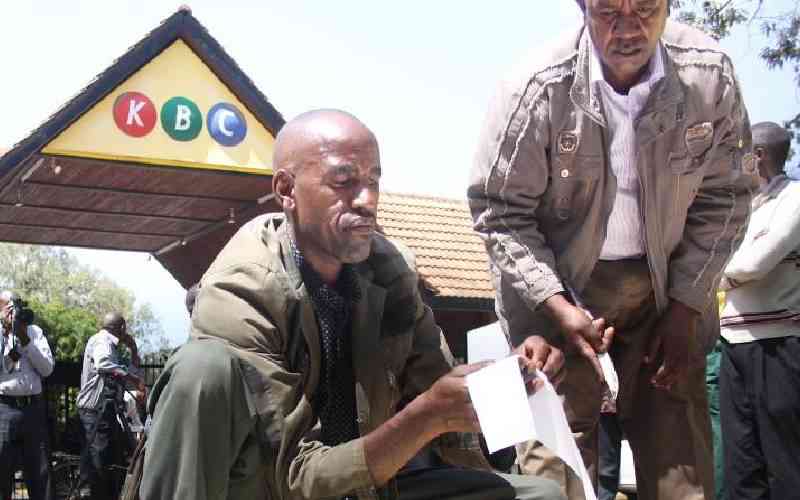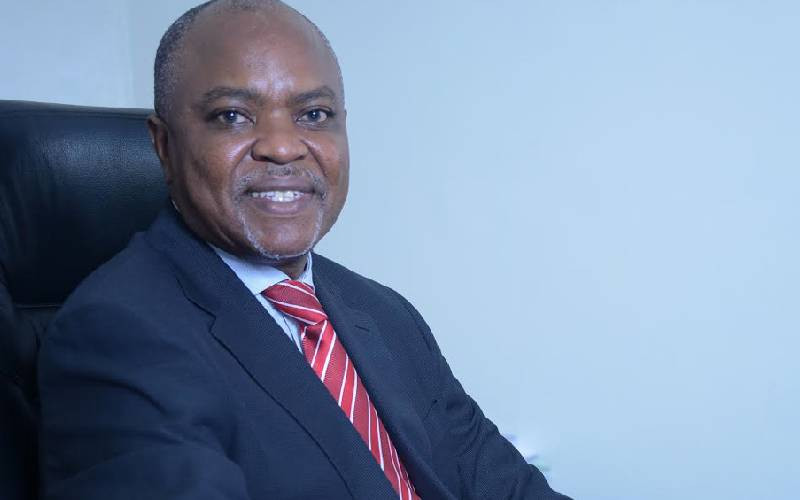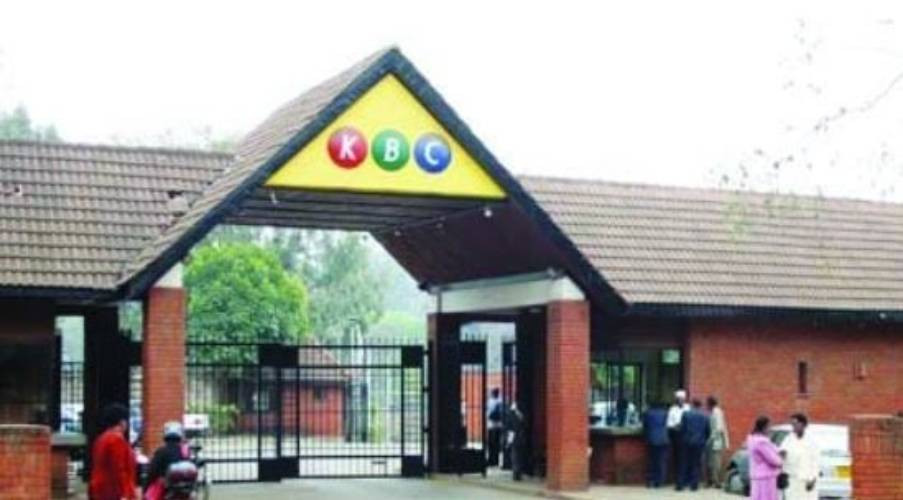The demise this week of Mzee Abdallah Mwasimba symbolises the fading away of a unique universe that he was a part of.
We, who were children in the 1960s and 70s, remember his rich lyrical baritone on the Voice of Kenya radio. We recall the poems and skits he inspired us with, full of vivid imagery and meaning. We remember a slew of coastal artists who made the Voice of Kenya the pride of the country.
It is important to emphasise the Voice of Kenya (VoK), as contrasted with the Kenya Broadcasting Corporation (KBC). For it was the voice of the nation, and not that of an individual. Those of us who were privileged to rule the airwaves as broadcast journalists in the gone age hired out our individual voices to our country. For, in the ‘80s, I was privileged to work at Broadcasting House as a producer of radio programmes.
Whenever I declared, “You are listening to the Voice of Kenya,” it was no longer my voice. Everything that followed ceased to be mine. It belonged not just to the station, but to the country. Kenya was speaking. The world was listening. Abdallah Mwasimba was part of our prosody in that universe. He wrestled with the search for the rhyme, rhythm, depth and meaning in the life we lived as a nation, and as a wider global community.
Mwasimba was at once a composer and a performing artist. He led us in a painful search for purpose and meaning. His style was hugely inquisitive. In this manner, he groped in the dark for the essence of the life of a young African nation. Together with Job Isaac Mwamto, they popularised Kiswahili prosody on radio. Their soothing mashairi calmed and lulled you, even as it transported you into inquisitive space. Should you have the luxury of lazing about, recumbent in a cozy place in the afternoon, their rich baritones easily lifted you into semi-sleepiness.
In your light sleep, you became not just their audience but a part of the cast. What they sang about became real. You saw and felt the divine world as Mwasimba explored the meaning of Mola Maulana, asking “Maulana we ni nani, ni nani kama si wewe?” He wondered about the divine greatness of God, and the wonders of his deeds, in the universe displayed.
Mwasimba’s focus was always social value-based and social value-driven. In a sense, his thematic focus took after Shaaban Bin Robert, who inquired about the simple things that make life. What is the meaning of being human? Utu ni nini, jameni? What does it really mean to be rich? And he would edify the inner richness of the soul, that which money cannot buy.
Here was a rich searching soul. And whether we realised it or not, whether we recognised this or not, Mwasimba was at once a great griot and a philosopher. Ali Mazrui famously said in the 1970s that a philosopher was someone who wonders. Mwasimba wondered. He wondered not just through his poetic compositions, but in dramatic scripts that he composed for the VoK’s Mchezo wa Radio.
With Khadija Ali, Said Ali Matano and Juwairiya Omari, they were at once producers and part of the cast. Their Mchezo wa Radio, Mapenzi Ya Hatari series in the early 1970s, was remarkably outstanding in suspense. Sponsored by Colgate Palmolive, it raised hope for sponsored drama on radio and TV, as did Gogo na Biskuti that featured Peter Lukoye (Mzee Tama), Mutiso and Baba Zero. Regrettably, sponsorship of performing arts went away just as fast as it came.
The big irony is that, in the broadcasts, commercial footage found adjacency to the drama. Yet the dramatists got little or nothing from the commercials that they attracted. They largely led lives of penury and indigence. This narrative of penury and indigence is incomplete – or has not even begun – without recalling Mzee Pembe, Mama Tofi and Juma. And there were others – Othorong’ong’o Danger, Inspector Amka Twende, Makanyaga, Mzee Ojwang,’ Mombasa Mwambao and many more, whom I should be forgiven for not mentioning.
Mwamto easily remains Kenya’s greatest spellbinding radio personality of all times. His Kweli na Aspro and Salamu Za Porojo programmes remain unrivaled. But Mwamto is forgotten. Please someone, name something after Job Isaac Mwamto. Perhaps KBC should give Kenyans a special programme from its archives for later generations to understand who their progenitors have been. The present managing director was my student. I hope he is reading.
Back to Mwasimba, we recall how he paid glowing poetic tribute to President Kenyatta, after Mzee passed on in 1978. For weeks on end, he composed soothing pieces, which he recited daily on radio. As a performing artist, Mwasimba will be remembered alongside Faraj Dumillah and such other coastal champions as songsters Paul Mwachupa Mazera, Daniel Gatuga, Fundi Konde and Fadhili William.
As a radio personality, he reminds us of the rich contribution form Kenya’s coast, featuring Mwamto, Hassan Mazoa, Jared Kangwana, JJ Mwangemi and Gatuga. Then there is, of course, Leonard Mambo Mbotela, Tom Kazungu and Leonard Mwasheghwa, who all have done Kenya proud with broadcast skill and talent.
The catalogue is too long to exhaust - Eddy Fondo, Sam Madoka, Kazungu Katana, Salim Juma, Said Omar Kasongo and so many others. This is to say nothing about the rest of the country.
The death of Abdallah Mwasimmba now challenges KBC to find a way of institutionalising these persons in memorialised immortality. They have done you proud. Meanwhile, Mola Maulana amlaze pema peponi, Mzee Abdallah Mwasimba. Sleep well, Mzee.
Stay informed. Subscribe to our newsletter
– The writer is a strategic public communications adviser
 The Standard Group Plc is a
multi-media organization with investments in media platforms spanning newspaper
print operations, television, radio broadcasting, digital and online services. The
Standard Group is recognized as a leading multi-media house in Kenya with a key
influence in matters of national and international interest.
The Standard Group Plc is a
multi-media organization with investments in media platforms spanning newspaper
print operations, television, radio broadcasting, digital and online services. The
Standard Group is recognized as a leading multi-media house in Kenya with a key
influence in matters of national and international interest.
 The Standard Group Plc is a
multi-media organization with investments in media platforms spanning newspaper
print operations, television, radio broadcasting, digital and online services. The
Standard Group is recognized as a leading multi-media house in Kenya with a key
influence in matters of national and international interest.
The Standard Group Plc is a
multi-media organization with investments in media platforms spanning newspaper
print operations, television, radio broadcasting, digital and online services. The
Standard Group is recognized as a leading multi-media house in Kenya with a key
influence in matters of national and international interest.








